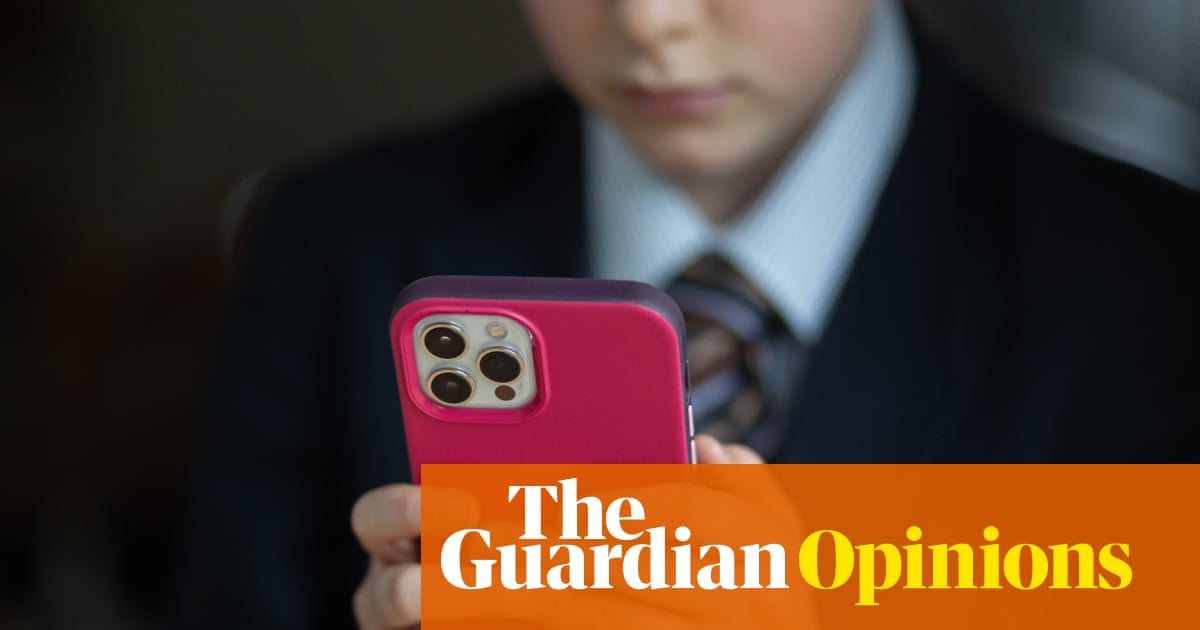I got a message from an ex-colleague who used to be fun and is now an agitator preaching “alt-right” nostalgia to the gerontocracy. Whatever it was he wanted, I would have told him to stick it, but it just so happened that I really disagreed with it: a cross-party group campaigning to restrict mobile phone use among children.
As reliably as bad things will happen to kids, people will blame it on phone use. Maybe there is a crisis in their mental health, or someone has been bullied online, or blackmailed over an image they have sent, or they’ve joined a criminal gang or undertaken a murderous enterprise or self-harmed: it is almost inconceivable that, somewhere in the story, a smartphone won’t have played a part. Those affected often wish they had limited phone use, or at the very least, they keenly regret how little they knew what was going on with their child, who was, of course, always on his or her phone. Then politicians and the commentariat get involved, leveraging the grief and trials of others for discursive advantage, preaching measures to schools that they’re often doing already, lecturing parents to return to the “dumb phone” or ban the devices altogether for their kids.
And so, steadily, it becomes another marker of reputable parenting. If you are doing it right, your children get a Nokia when they’re 14, and don’t find out about Instagram until they’re 25, and all those kids who have had an iPhone since they were six and can one-thumb text with their eyes closed, well, they were poorly parented, obviously. The main reason I hate campaigns like this is that they set parents up as jailers whose authority has to be evaded, which I can’t help but think inhibits openness. More than anything else, beyond diligence, respect or responsibility, I like to instil the value of “tell me what’s going on”. No information is too small; no beef too trivial; no gossip too remote. If someone in a completely different year texts someone else a prawn emoji, but they mistake it for a sombrero, I want to hear about it. Also, if I want to be in a pitched battle with teenagers for significant amounts of each day, I want it to be about something that matters – what is better, a dog or a cat? How many Crunchies is the right number to eat in a day? – not about a compulsive phone-checking behaviour that is the same, or maybe marginally better, than my own.
But I would be lying if I said I didn’t look at the condition of modern connectedness and freak the hell out, several times a day. TikTok is basically an endless reinforcement exercise. That’s fine if your hobbies are K-pop and cafes with animals in them – all you’re going to see are more extremely accomplished young Korean women and some piglets drinking cappuccino. When I was 14, I regularly thought I was going crazy, and I was obsessed with trench warfare; I don’t even want to think what mashup of self-diagnosed psychosis and army recruitment ads my social feeds would have looked like.
Snapchat, meanwhile, works as if someone made an app out of an anxiety dream: imagine if everyone could not only see who you spent most of your time talking to, but also who they spoke to the most, and could rank your entire circle by its asymmetrical loyalties and affiliations. Imagine if they could also see where everybody was, on Snap Map, all the time, but if you turned it off to evade detection, that would look suspect, and then people would gossip about you, probably on Snapchat. The levels of hyper-surveillance teenagers exert over each other are unbelievable. I almost don’t want to make it worse by sticking my oar in.
Yet I do, and only ever to say one thing: whatever it is, it’s not the end of the world. Today’s social apocalypse will be tomorrow’s droll anecdote. Yes, the internet has a really long memory, but it also has a lot on its plate; it doesn’t have the stamina for an outrage to last for ever, or even for a fortnight. It’s weird that nobody ever suggests a cross-party parenting campaign for us all to maintain a sense of proportion. That ought to be our main job.







